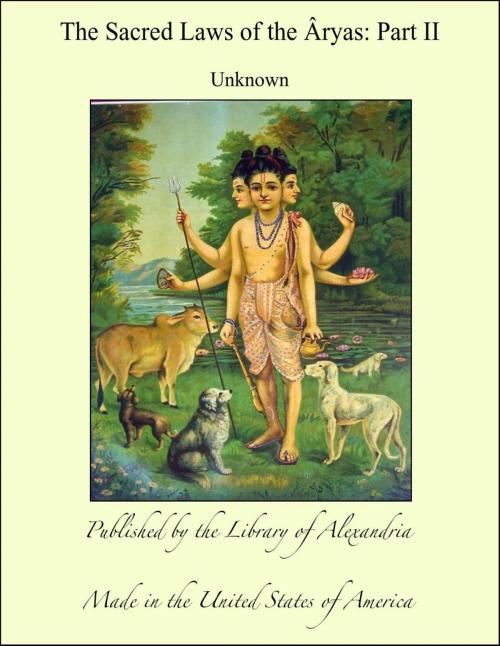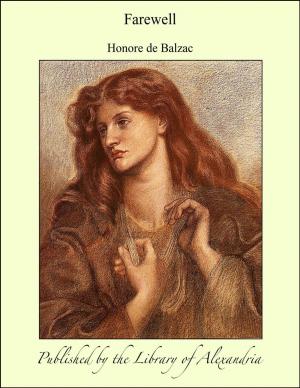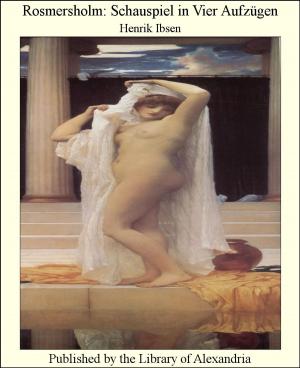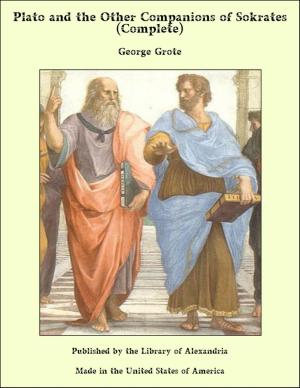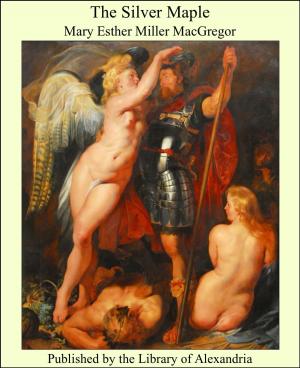The Sacred Laws of the Âryas: Part II
Nonfiction, Religion & Spirituality, New Age, History, Fiction & Literature| Author: | Unknown | ISBN: | 9781465580689 |
| Publisher: | Library of Alexandria | Publication: | March 8, 2015 |
| Imprint: | Language: | English |
| Author: | Unknown |
| ISBN: | 9781465580689 |
| Publisher: | Library of Alexandria |
| Publication: | March 8, 2015 |
| Imprint: | |
| Language: | English |
THE Vâsishtha Dharmasâstra is, like that of Gautama, the last remnant of the Sûtras of a Vedic school, which, as far as our knowledge goes at present, has perished, together with the greater part of its writings. We owe the preservation of its Dharma-sûtra probably to the special law schools of India, which, attracted as it would seem by its title and the legend connecting it with Vasishtha Maitrâvaruni, one of the most famous Rishis of the Rig-veda and a redoubtable champion of Brâhmanism, made it one of their standard authorities. The early existence of a legend according to which the Vâsishtha Dharma-sûtra was considered either to be a work composed by the Rishi Vasishtha, or at least to contain the sum of his teaching on the duty of man, is indicated by several passages of the work itself. For the Dharma-sûtra names Vasishtha, or appeals to his authority on no less than three occasions. First, we find a rule on lawful interest, which is emphatically ascribed to Vasishtha1. 'Learn the interest for a money lender,' the Sûtra says, 'declared by the word of Vasishtha; five mâshas (may be taken) for twenty (kârshâpanas every month).' Again, at the end of a long string of rules2 which contain the observances to be kept by sinners who undergo Krikkhra penances, Vasishtha's name is brought forward as the authority for them, and the last words are, 'Thus speaks the divine Vasishtha.' Finally, the concluding Sûtra of the whole work3 gives expression to the devotion felt by the author for the Rishi, 'Adoration to Vasishtha, Satayâtu, the son of Mitra and Varuna and of Urvasî.' The epithets used in this last passage conclusively show that the Vasishtha after whom the Dharma-sûtra is named, is the individual who, according to the Brâhmanical tradition, is the Rishi of a large portion of the seventh Mandala of the Rig-veda and the progenitor of the Vâsishtha clan of Brâhmans, and who in some hymns of the Rig-veda appears as the purohita or domestic priest of king Sudâs and the rival of Visvâmitra, and in other Sûktas as a half mythical being. For the verses Rig-veda VII, 33, 11-14 trace the origin of this Vasishtha to the two sons of Aditi, Mitra and Varuna, and to the Apsaras Urvasî, and contain the outline of the curious, but disgusting story of his marvellous birth, which Sâyana narrates more circumstantially in the commentary on verse 11. Moreover, the word Satayâtu, which in the Dharma-sûtra is used as an epithet of Vasishtha, occurs Rig-veda VII, 18, 21 in close connexion with the Rishi's name. Sâyana explains it in his commentary on the latter passage as 'the destroyer of many demons,' or, 'he whom many demons seek to destroy,' and takes it as an epithet of the sage Parâsara, who is named together with Vasishtha. It would, however, seem that, if the verse is construed on strictly philological principles, neither Sâyana's interpretation, nor that suggested by the Dharma-sûtra can be accepted, and that Satayâtu has to be taken as a proper name1. But, however that may be, it is not doubtful that we may safely infer from the expressions used in the last sentence of the Dharma-sûtra, that the Vasishtha to whom the invocation is addressed and the composition of the work is ascribed, either immediately or through the medium of pupils, is the individual named in the Rig-veda.
THE Vâsishtha Dharmasâstra is, like that of Gautama, the last remnant of the Sûtras of a Vedic school, which, as far as our knowledge goes at present, has perished, together with the greater part of its writings. We owe the preservation of its Dharma-sûtra probably to the special law schools of India, which, attracted as it would seem by its title and the legend connecting it with Vasishtha Maitrâvaruni, one of the most famous Rishis of the Rig-veda and a redoubtable champion of Brâhmanism, made it one of their standard authorities. The early existence of a legend according to which the Vâsishtha Dharma-sûtra was considered either to be a work composed by the Rishi Vasishtha, or at least to contain the sum of his teaching on the duty of man, is indicated by several passages of the work itself. For the Dharma-sûtra names Vasishtha, or appeals to his authority on no less than three occasions. First, we find a rule on lawful interest, which is emphatically ascribed to Vasishtha1. 'Learn the interest for a money lender,' the Sûtra says, 'declared by the word of Vasishtha; five mâshas (may be taken) for twenty (kârshâpanas every month).' Again, at the end of a long string of rules2 which contain the observances to be kept by sinners who undergo Krikkhra penances, Vasishtha's name is brought forward as the authority for them, and the last words are, 'Thus speaks the divine Vasishtha.' Finally, the concluding Sûtra of the whole work3 gives expression to the devotion felt by the author for the Rishi, 'Adoration to Vasishtha, Satayâtu, the son of Mitra and Varuna and of Urvasî.' The epithets used in this last passage conclusively show that the Vasishtha after whom the Dharma-sûtra is named, is the individual who, according to the Brâhmanical tradition, is the Rishi of a large portion of the seventh Mandala of the Rig-veda and the progenitor of the Vâsishtha clan of Brâhmans, and who in some hymns of the Rig-veda appears as the purohita or domestic priest of king Sudâs and the rival of Visvâmitra, and in other Sûktas as a half mythical being. For the verses Rig-veda VII, 33, 11-14 trace the origin of this Vasishtha to the two sons of Aditi, Mitra and Varuna, and to the Apsaras Urvasî, and contain the outline of the curious, but disgusting story of his marvellous birth, which Sâyana narrates more circumstantially in the commentary on verse 11. Moreover, the word Satayâtu, which in the Dharma-sûtra is used as an epithet of Vasishtha, occurs Rig-veda VII, 18, 21 in close connexion with the Rishi's name. Sâyana explains it in his commentary on the latter passage as 'the destroyer of many demons,' or, 'he whom many demons seek to destroy,' and takes it as an epithet of the sage Parâsara, who is named together with Vasishtha. It would, however, seem that, if the verse is construed on strictly philological principles, neither Sâyana's interpretation, nor that suggested by the Dharma-sûtra can be accepted, and that Satayâtu has to be taken as a proper name1. But, however that may be, it is not doubtful that we may safely infer from the expressions used in the last sentence of the Dharma-sûtra, that the Vasishtha to whom the invocation is addressed and the composition of the work is ascribed, either immediately or through the medium of pupils, is the individual named in the Rig-veda.
